About the conference
Students from the Research Club for Peer Relations and Bullying OLWEUS are pleased to invite any interested parties to attend OLWEUS Days. This three-day event will offer lectures by acclaimed researchers from all over the world, specializing in the topic of bullying, such as Professor Ellen deLara, Professor Faye Mischna, Professor Jacek Pyżalski, and Małgorzata Wójcik, Ph.D., and an Anti-Bullying Support Lab, i.e. a workshops for parents and teachers, which we have called . Moreover, during the conference, we will present the results of students' research on bullying. Attendees will also have an opportunity to hear a lecture by Szymon Wójcik, Ph.D., from the Empowering Children Foundation (a Polish non-governmental organization, which provides comprehensive support to children and guardians of children experiencing violence and sexual abuse).
OWEUS Days is a cross-faculty event as the members of the OLWEUS Research Club hail from three different campuses of SWPS University, including: Warsaw, Wrocław, and Katowice.
The conference is in a hybrid format. On April 11, 2022, we will connect guests and speakers gathered at our Katowice campus, at the Faculty of Psychology in Katowice with those joining us online. We hope that parents and teachers will also participate in OLWEUS Days as they are the fundamental link to effective anti-bullying interventions. We would like the parents and teachers not only to participate in the workshop but also to express their opinions during one of the segments.
During the conference, we will focus on the following topics:
- Prevention of peer violence
- Where and when does violence start?
- Who are the perpetrators of violence? Who can help perpetrators change their behavior and how?
- How can we help children who experience violence?
- The role of adults in the face of bullying
- Cyberbullying
Speakers
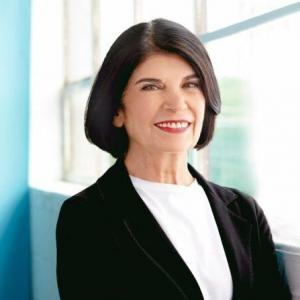
Faye Mishna
Professor
is a Professor at the Factor-Inwentash Faculty of Social Work at the University of Toronto. Faye worked in children’s mental health for over 20 years. Before joining the Faculty, she was Clinical Director of Integra, a children’s mental health center. Her research focuses on bullying and cyberbullying from the perspectives of the victimized children and youth, their parents, and educators; sexting and online sexual harassment and abuse among youth; and the informal use of digital technology in clinical social work. Faye is the author of Bullying: A Guide to Research, Intervention, and Prevention and a co-author of Bullying in Canada. She has a small private practice in psychotherapy and consultation.
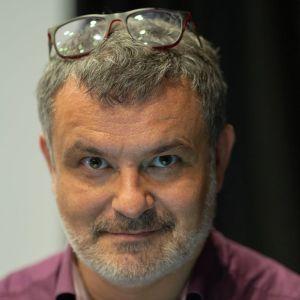
Jacek Pyżalski
Professor
Profesor na Wydziale Studiów Edukacyjnych Uniwersytetu im. Adama Mickiewicza w Poznaniu. Pomysłodawca, kierownik i wykonawca ponad sześćdziesięciu międzynarodowych i krajowych projektów badawczych. Autor licznych publikacji. Trener w obszarze komunikowania i trudnych zachowań oraz edukacji medialnej. Wiceprezes Polskiego Towarzystwa Edukacji Medialnej. Członek Rady Centrum Edukacji Obywatelskiej. Specjalista Komitetu Nauk Pedagogicznych Polskiej Akademii Nauk. Koordynator części polskiej programu ySkills oraz oraz badania EU Kids Online. Zainteresowania badawcze związane z zagadnieniami: kompetencji cyfrowych, agresji elektronicznej, nowych mediów, komunikacji w szkole, promocji zdrowia, cyberprzemocy wśród młodzieży. Pomysłodawca i redaktor pierwszego polskiego podręcznika edukacji zdalnej w czasach pandemii (wydanego zaraz po zamknięciu szkół w kwietniu 2020 r.) zdalnie.edu-akcja.pl. Autor pierwszej monografii na rynku polskim dotyczącej agresji elektronicznej – „Agresja elektroniczna wśród dzieci i młodzieży”.
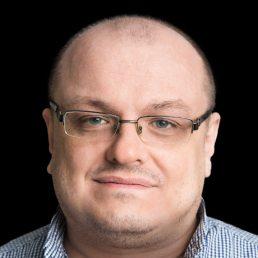
Krzysztof Rzeńca
M.A.
is a psychologist and innovation broker at SWPS University. His professional interests focus on the application of new technologies, such as mHealth, mobile health, and e-Mental Health, in psychology, especially in education and online psychological interventions. He has gained professional experience at the Educational Research Institute (IBE), where he was involved in the Education Enthusiasts project run by the Early Education Team. Krzysztof carried out multiple research projects while working at the Educational Research Institute (IBE). As a Board Member of RESQL Sp. z o.o., he is responsible for commercialization of the RESQL system on behalf of the Center for Knowledge Transfer at SWPS University.
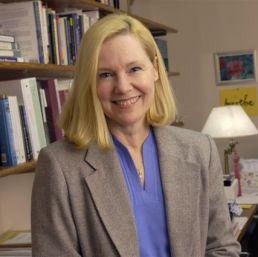
Ellen Walser deLara
Professor
is an Associate Professor Emerita in the School of Social Work at Syracuse University. She is also a practicing family therapist with over 35 years of experience working with children, adolescents, and adults in school and clinical settings. Her areas of research expertise address child maltreatment, school violence, and bullying from systemic and developmental perspectives. Currently, Ellen is investigating the long-term consequences of childhood bullying on adult relationships. In addition, she is studying the impact of childhood bullying by peers, parents, and teachers on adult mental health and decision-making. She is the author of Bullying Scars: The impact on adult life and relationships and And Words Can Hurt Forever: How to protect adolescents from bullying, harassment, and emotional violence. She is also the co-author of School-based Intervention Programs.
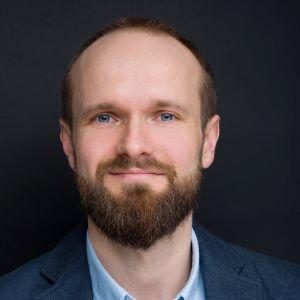
Piotr Rycielski
Ph.D.
Pracownik Instytutu Psychologii Uniwersytetu SWPS w Warszawie. Członek zespołu projektu RESQL, zajmującego się problemami zapobiegania przemocy szkolnej. Przez wiele lat adiunkt i członek rady naukowej w Instytucie Badań Edukacyjnych w Warszawie. Wykładowca akademicki, autor i współautor licznych badań naukowych i publikacji z zakresu psychologii edukacji realizowanych w Pracowni Szkolnych Uwarunkowań Efektywności Kształcenia i w Zespole Wczesnej Edukacji IBE. Bada rozwój poznawczy dzieci i młodzieży. Interesuje się psychologią poznania społecznego, dynamiką małych grup oraz metodologią badań społecznych. Propaguje leśną edukację.
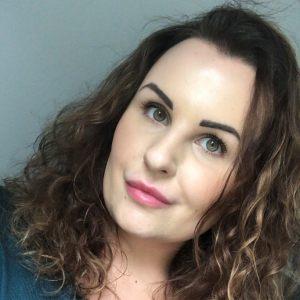
Maria Mondry
M.A.
Magister psychologii, doktorantka na Interdyscyplinarnych Studiach Doktoranckich Uniwersytetu SWPS w Warszawie. Jest także laureatką wielu nagród stypendialnych, w tym nagrody im. prof. Romana Czerneckiego w 2021 r. Jest pracownikiem dydaktycznym prowadzącym zajęcia z zakresu psychologii społecznej i klinicznej. Stworzyła i przeprowadziła wiele warsztatów dla młodzieży, które dotyczyły depresji wśród adolescentów oraz przemocy rówieśniczej. W swojej praktyce psychologicznej wspiera klientów, którzy doświadczyli przemocy i borykają się z zaburzeniami depresyjnymi i lękowymi. Dodatkowo jest uczestniczką projektów naukowych poświęconych zagadnieniom przemocy wśród młodych oraz doświadczeń dorosłych, którzy w przeszłości byli narażeni na przemoc w szkole. Jej działania naukowe mają na celu przede wszystkim wprowadzenie realnych zmian i skutecznych interwencji w środowisku szkolnym.
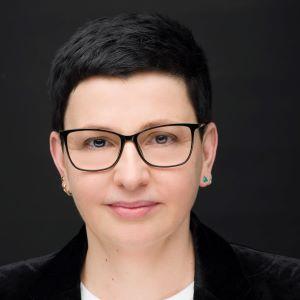
Małgorzata Wójcik
Ph.D.
holds a doctorate in the discipline of Social Sciences (Psychology). She has extensive experience teaching English and serving as a homeroom teacher in primary and middle schools. Currently, she researches the causes and manifestations of bullying in schools and dynamics in peer groups. Together with her team, she implements innovative educational programs that help to prevent violence, stigmatization, and discrimination in peer groups. Her social innovation project, Educational Intervention Bliżej [Closer], financed by The National Centre for Research and Development (NCBiR), led to the development of a program focused on the elimination of social exclusion and marginalization in middle schools. She is a grant recipient in the eNgage program, financed by the Foundation for Polish Science. The grant supported the INKLA - Anti-Bullying Action Research project, aimed at engaging youth in research teams, which conducted qualitative research, related to peer relations at school. Currently, Dr. Wójcik is working on the implementation of the Drużyny anty-przemocowe [Anti-violence Teams] project focused on activating bystanders of peer bullying. Together with students of the Katowice Faculty of Psychology, she is researching the phenomenon of cyberbullying and its prevention.
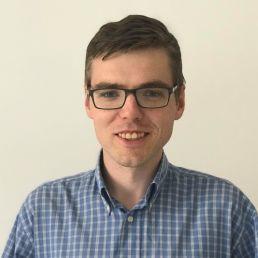
Szymon Wójcik
Ph.D.
Doktor socjologii, pracuje na Uniwersytecie Warszawskim. Od 2013 r. koordynator projektu saferinternet.pl w Fundacji Dajemy Dzieciom Siłę. Zaangażowany w szereg projektów badawczych odnoszących się do bezpieczeństwa dzieci i młodzieży w internecie. Jest autorem i współautorem szeregu publikacji dotyczących zagrożeń internetowych wśród najmłodszych i od wielu lat członkiem komitetu organizacyjnego Międzynarodowej Konferencji „Bezpieczeństwo dzieci i młodzieży w internecie”.
Anti-Bullying Support Lab - workshop
Learn how to deal with bullying and its consequences. Should adults intervene when children "tease" each other, or should children resolve their problems on their own? How do you know when it's no longer a joke? During the workshop, you will discover the origins and types of bullying. You will also learn how to act if this problem affects your pupils.
Anti-Bullying Support Lab will be conducted by the members of the OLWEUS Research Club, developed under the supervision of Małgorzata Wójcik, Ph.D. The workshop is addressed to anyone who wants to broaden their knowledge, get to know the latest research results on peer violence, and develop new skills.
Passionate about research
The leaders of the workshop are active members of the Bullying and Parenting research team, which researches parents' and guardians' perceptions of peer violence. They will share their knowledge and demonstrate its practical applications.
It is a two-part workshop. The first part will be focused on studying theories of bullying, while the second part will be devoted to the tools that help us deal with this phenomenon.
During the workshop, you will learn:
- What is bullying? Examples of behavior, who may become a victim and who may become a perpetrator. What is the scale of the problem?
- What actions contribute to and protect from bullying
- What are the effects of bullying on children, and are the direct victims the only ones affected by it
- How to effectively reduce peer violence and minimize the risk of its occurrence
- How to talk to children experiencing bullying
- how to support children who have been bullied, and how to help aggressors change their behavior .
The workshop is addressed to parents, teachers, educators, and people who work at schools, parenting centers, or other places where groups of children/adolescents interact with each other. The workshop is open to registered participants who. The number of participants is limited, and applications are processed on a first come, first served basis.
For online workshops, please ensure you have a computer, a laptop, or a tablet with a microphone, camera and internet access. Mobile phones are not recommended as they make it difficult to participate in activities that require collaboration.
Format of the event
It is a hybrid event. The participants may join us both in person at SWPS University in Katowice (room 111, ul. Techników 9) and online.
Participation in lectures and workshops is free of charge.
The OLWEUS Research Club would like to thank the RESQL company for professional and research support.
Organizers
Partnerzy
Contact
Chair of the OLWEUS Research Club
Jakub T. Mróz
This email address is being protected from spambots. You need JavaScript enabled to view it.